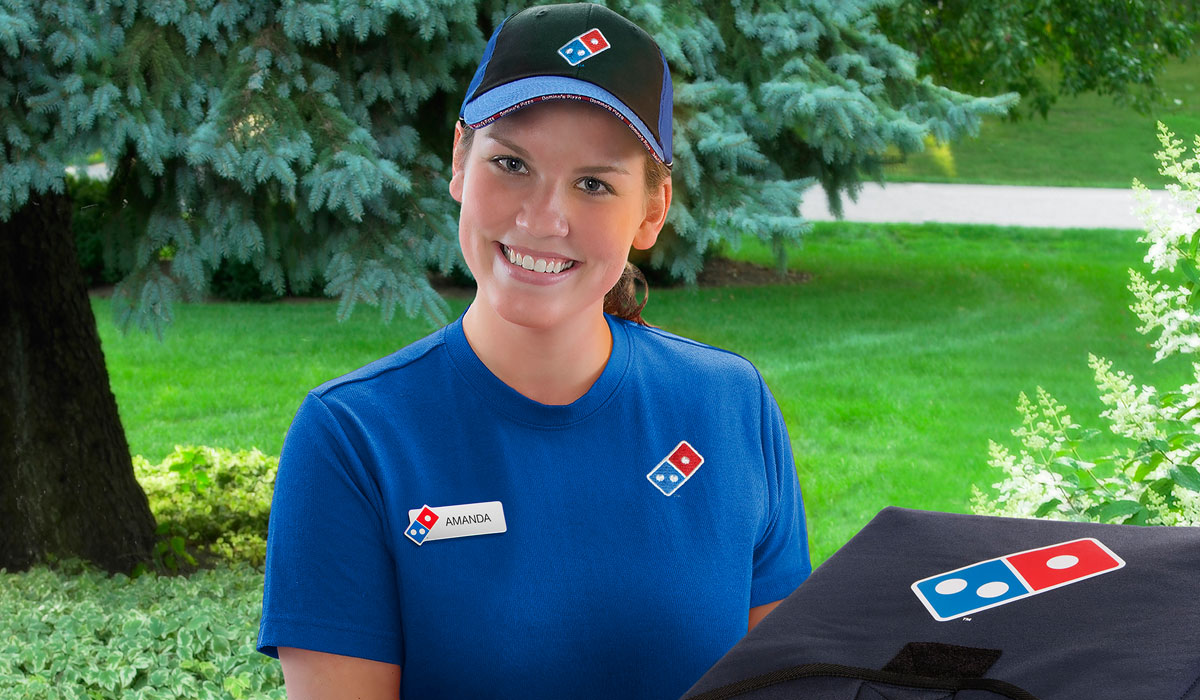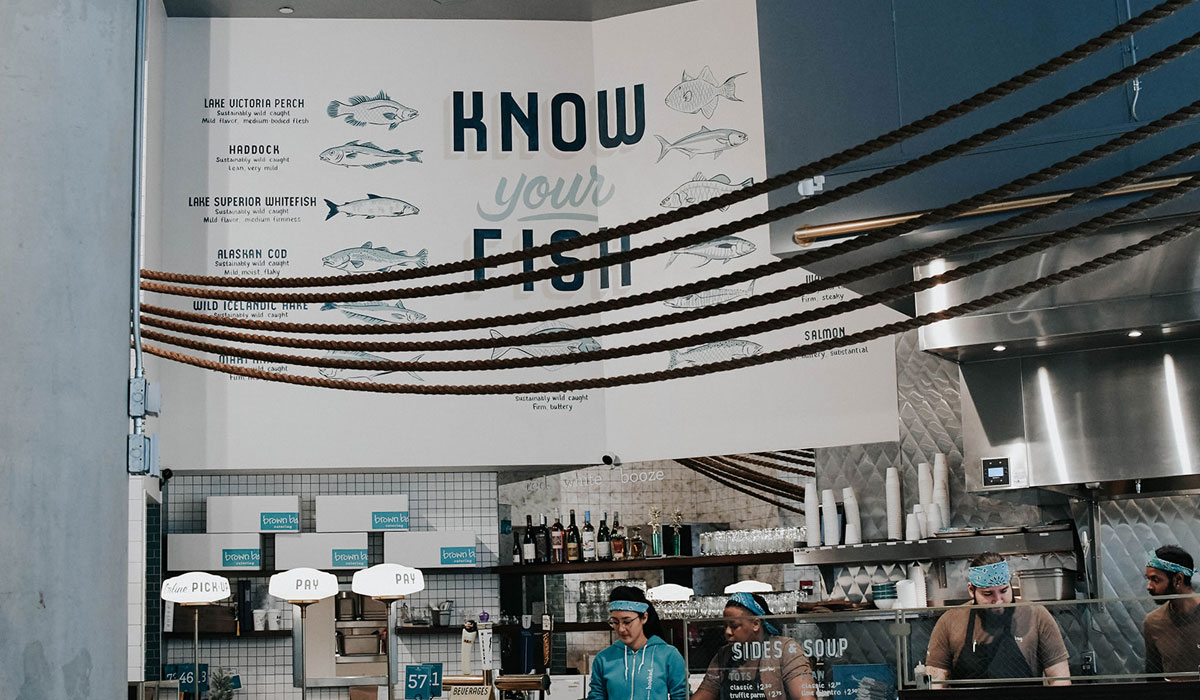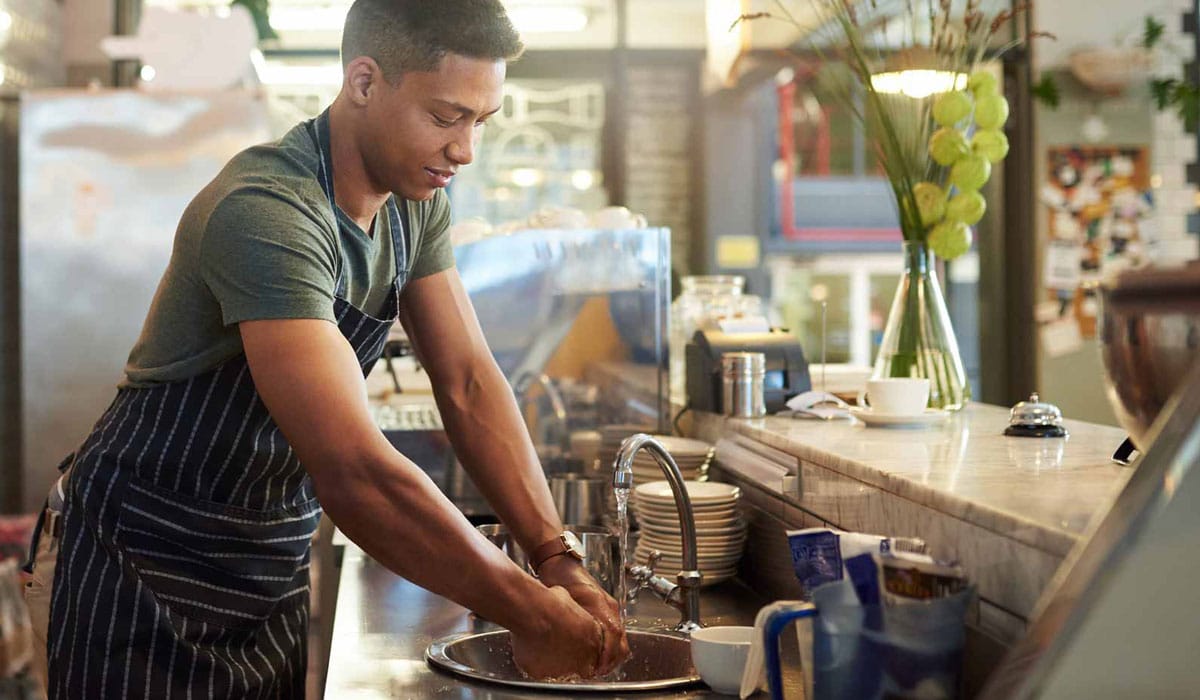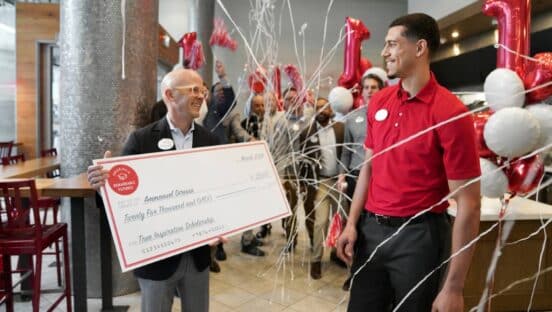While thousands of restaurant employees have been put out of work by the spread of the novel coronavirus, some chains continue to hang up help wanted signs.
Pizza Hut, Papa John’s and Domino’s have announced plans to hire tens of thousands of delivery drivers, pizza makers and managers at stores across the United States, as on-premise dining grinds to a halt.
“While many local, state, and federal rules are closing dine-in restaurants, the opportunity to keep feeding our neighbors through delivery and carryout means that a small sense of normalcy is still available to everyone,” Domino’s CEO Richard Allison said in a news release. “Our corporate and franchise stores want to make sure they’re not only feeding people, but also providing opportunity to those looking for work at this time, especially those in the heavily-impacted restaurant industry.
Likewise, Jet’s Pizza, known for Detroit-style pies, announced it was hiring delivery drivers in all its 386 locations across 20 states. The chain publicized that out-of-work teachers, restaurant and bar workers could land positions that pay $13 to $16 per hour.
David Falato, an owner and franchisee of stores in downtown Chicago and Austin, says business has been down, with no more corporate catering gigs or downtown lunch traffic.
“It’s almost like the Christmas break,” he says.
But with schools canceled to help slow the spread of COVID-19, some workers have had trouble finding other childcare arrangements. The global pandemic also has many retail and restaurant workers concerned about possible exposure because of their interactions with the public.
“We’re full at this point but literally five minutes before I got on the phone someone walked out and said, ‘I can’t do this anymore, I’m going home,’” Falato says. “One person had a child that was susceptible. So he didn’t feel comfortable coming in. People are generally just scared.”
Falato says his stores benefited during the Great Recession because of the brand’s affordable menu. He expects that may hold true in the coming months, as workers across all industries suffer layoffs.
“We’re all going to be hurting for money,” he says. “Pizza was always meant to be the working class’s solution or a dinner back in the day when it was created—the poor man’s dinner.”

The National Restaurant Association predicts total U.S. sales may decline by as much as $225 billion over three months, costing as many as 7 million jobs. That grim forecast is all the more noteworthy considering most operators struggled to hire just weeks ago at a time of record low unemployment rates.
Jay Bandy, president of Goliath Consulting Group, says restaurant chains flattened their management ranks as they made cutbacks during the Great Recession. While many of those organizations are leaner now, he expects to see similar cutbacks in home offices as companies respond to rapidly declining sales.
“It’s going to wipe out some middle managers,” he says.
Gary Stibel, founder and CEO of the New England Consulting Group, says the question isn’t so much whether the U.S. will experience a recession, generally defined as two consecutive quarters of declining gross domestic product. The real question is how long this recession will last.
His consultancy predicts the 2020 recession will be deep, but maybe not particularly long lasting. The nation may climb out of it as early as the fourth quarter of this year, he says.
“But we will feel a lot of pain between now and then,” Stibel says. “And unfortunately, the restaurant industry will feel more pain than most businesses.”
While few will be spared, Stibel says the quick-service space is well suited to survive this period. With dine-in service banned in many jurisdictions, it’s obvious that brands who already excel at off-premise execution have a leg up in this environment that revolves around carry-out, delivery and curbside pickup.
“[Quick service] is probably going to do the best because they have done a better job of everything from drive-thru to pick up to delivery,” he says. “So, we think [quick service] is better positioned than fast-casual or white tablecloth. But it is going to require even for them a pivot.”

“Of course it’s going to be challenging. It’s going to be challenging for every single restaurant out there,” says Zach Flanzman, Brown Bag Seafood’s chief strategy officer. “But a lot of times we don’t have a big challenge going on and we’re lucky. So, when it comes to figuring out what we do in these circumstances, it’s part of the job, too.”
In the meantime, operators should focus on trimming costs and holding onto their teams: “People first because they are what keeps you in business, not your customers, but your people, your crews, your staff,” he says.
In light of his projection of a short-lived downturn, Stibel recommends brands start preparing now for brighter days ahead. They can keep tipped workers by moving them to support more robust delivery programs. And he says he’s working with some clients on a restaurant month—a beefed up version of the restaurant weeks held across U.S. cities.
“Why not create national restaurant month? Why not get ahead of this?” he says. “Do we know what month it will be? No, but we can start planning it now.”
While the entire nation braces for widespread job losses across industries, quick-service restaurants can step in and offer a sense of normalcy, says Justin Mink, SVP of sales at marketing and technology firm Scorpion.
Something as simple as a trip to a drive thru might provide an affordable distraction for families—particularly in an era when millions are cooped up at home for days on end.
“It’s the simple pleasures, like a frosty. It’s 99 cents,” Mink says. “It’s something you can do with the family and make your kids happy. It’s a treat. I just think the whole value equation and what people care about is going to maybe be flipped on its head now.”
As uncertain as these times are, many restaurants are working to hold onto the staff they have.
Washington, D.C-based fast casual &pizza has expanded sick leave for employees and waived waiting periods for health care coverage for new employees. The company has also increased hourly wages by a buck, promised unlimited pizza to employees and their families and is offering 14 days of “health and safety” pay for any worker who suspects they have coronavirus.
Likewise, Chicago’s Brown Bag Seafood is working to support—and retain its 75 or so hourly employees. The company has committed to paying 70 percent of hours workers lose from business slowdown or for time needed to care for themselves or family.
CEO Donna Lee says the company has built a culture around open communication. During these times, leaders are working to calmly make and communicate decisions on how to proceed.
Brown Bag Seafood has worked to be there for employees, “letting them know exactly what the plan is going forward with the information that we know and communicating that to them in a very human way, not in a way that’s like here’s a piece of paper on a window, here’s what’s going on with your life,” Lee explains to QSR. “We brought everybody together to tell them what the plan was and had something of a town hall if you will. And I think that it put a lot of people at ease.”
Zach Flanzman, the company’s chief strategy officer, says the 70 percent commitment means hourly workers can count on making their next rent payment. The brand will also pay salaried workers at their full rates.
“Of course it’s going to be challenging. It’s going to be challenging for every single restaurant out there,” Flanzman says. “But a lot of times we don’t have a big challenge going on and we’re lucky. So, when it comes to figuring out what we do in these circumstances, it’s part of the job, too.”













